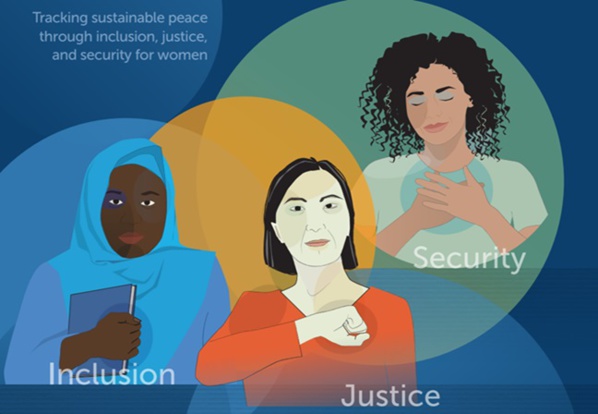Morocco ranked 114th globally in the 2023/24 Women’s Safety Index, published by the Georgetown Institute for Women.
This ranking translates to a moderate safety score of 0.637 on a scale of 0 (least safe) to 1 (safest).
While this positions Morocco 10th amongst Arab nations, it falls behind top performers like the United Arab Emirates (1st) and Bahrain (56th).
The index delves into various factors impacting women’s well-being. It examines aspects like access to education (where Morocco scored 5.0), financial inclusion (32.7), and employment opportunities (25.6).
Positive indicators reveal progress in specific areas. The report highlights high mobile phone usage amongst women (88) and low tolerance for bias (104.7).
Additionally, Morocco scores well on measures related to intimate partner violence (10) and political violence (0.032).
However, the report also identifies areas demanding improvement. Legal discrimination against women remains an issue (scoring 75.6), and access to justice requires further strengthening (3.032).
Morocco’s standing is further illuminated by comparing it to its neighbors. Morocco outperforms several Arab countries, including Algeria (118th), Libya (122nd), and Egypt (110th). However, it lags behind nations like Kuwait (61st) and Qatar (80th).
On a regional scale, the report said that of the country groups and regions, the Middle East and North Africa performs worst on both legal discrimination and access to justice.
Countries like Iran, Jordan, Kuwait, Palestine, Qatar, Syria, and Yemen have no criminal penalties for sexual harassment in the workplace.
According to the report, the MENA region performs third worst overall but has the widest range of performance, with the United Arab Emirates ranking 22nd and Yemen 176th.
Of all regions and country groups, MENA reports the lowest averages for women’s employment (22 percent), parliamentary representation (15 percent), absence of legal discrimination (49 out of 100), and access to justice (1.69 out of 4). The United Arab Emirates is the only MENA country ranking among the top 50.
On a global scale, Denmark emerges as the safest country for women (0.932), followed by Iceland, Finland, Sweden, and Switzerland.
Conversely, Afghanistan ranks lowest (0.286), alongside Yemen (0.287) and war-torn nations like South Sudan and Central African Republic.
HESPRESS English
This ranking translates to a moderate safety score of 0.637 on a scale of 0 (least safe) to 1 (safest).
While this positions Morocco 10th amongst Arab nations, it falls behind top performers like the United Arab Emirates (1st) and Bahrain (56th).
The index delves into various factors impacting women’s well-being. It examines aspects like access to education (where Morocco scored 5.0), financial inclusion (32.7), and employment opportunities (25.6).
Positive indicators reveal progress in specific areas. The report highlights high mobile phone usage amongst women (88) and low tolerance for bias (104.7).
Additionally, Morocco scores well on measures related to intimate partner violence (10) and political violence (0.032).
However, the report also identifies areas demanding improvement. Legal discrimination against women remains an issue (scoring 75.6), and access to justice requires further strengthening (3.032).
Morocco’s standing is further illuminated by comparing it to its neighbors. Morocco outperforms several Arab countries, including Algeria (118th), Libya (122nd), and Egypt (110th). However, it lags behind nations like Kuwait (61st) and Qatar (80th).
On a regional scale, the report said that of the country groups and regions, the Middle East and North Africa performs worst on both legal discrimination and access to justice.
Countries like Iran, Jordan, Kuwait, Palestine, Qatar, Syria, and Yemen have no criminal penalties for sexual harassment in the workplace.
According to the report, the MENA region performs third worst overall but has the widest range of performance, with the United Arab Emirates ranking 22nd and Yemen 176th.
Of all regions and country groups, MENA reports the lowest averages for women’s employment (22 percent), parliamentary representation (15 percent), absence of legal discrimination (49 out of 100), and access to justice (1.69 out of 4). The United Arab Emirates is the only MENA country ranking among the top 50.
On a global scale, Denmark emerges as the safest country for women (0.932), followed by Iceland, Finland, Sweden, and Switzerland.
Conversely, Afghanistan ranks lowest (0.286), alongside Yemen (0.287) and war-torn nations like South Sudan and Central African Republic.
HESPRESS English



 الدكتوراه في قانون العقود والعقار ـ إشراف الدكتور إدريس الفاخوري
الدكتوراه في قانون العقود والعقار ـ إشراف الدكتور إدريس الفاخوري 














 Morocco News Society Morocco ranks 114th in global women's safety Index: Georgetown Institute report
Morocco News Society Morocco ranks 114th in global women's safety Index: Georgetown Institute report













